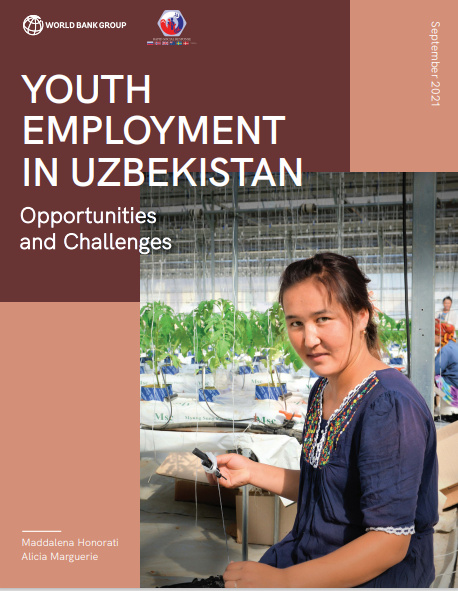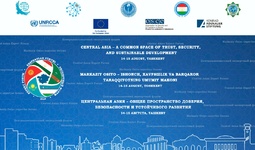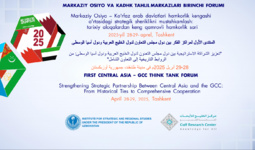The Ministry of Employment and Labor Relations (MELR) and the World Bank co-organized a round table to present findings and recommendations of a new report analyzing challenges and opportunities for youth employment in Uzbekistan.
Event participants also discussed measures the Government is taking to support youth employment and youth entrepreneurship.
In November 2021, the World Bank issued a new report assessing the challenges youth in Uzbekistan face when transitioning from secondary and higher education to work and the current measures taken by the Government to address them. It also offers policy recommendations focusing on labor market reforms that could be implemented in the short, medium and long-term perspective to improve youth employability. The Ministry of Employment and Labor Relations, other government agencies and non-governmental organizations contributed to the preparation of the report.
According to the World Bank study, with 15 million youth up to 24 years and 18 million up to 29 years, young people are both an opportunity and a challenge for Uzbekistan’s economic development. They face higher constraints to employment among the working-age population and exhibit high levels of inactivity rates and discouragement. Young people who are not in employment, education, or training represent 24 percent of youth of age 16-24 and 26.4 percent of youth of age 16-29.
The study found that the main employment challenges reported by youth include the scarcity of jobs and weak labor demand in rural areas. Most young people are hired without formal registration and without opening an “employment record book”. Youth complains about the low levels of wages compared to their aspirations. Social stereotypes and cultural norms have a profound impact on young women’s participation in economic activities, access to good employment opportunities, and the gender pay gap.
Meanwhile, both youth and employers attest to the large skills mismatches and skills gaps and their effect on hiring and job satisfaction. Few firms provide training to compensate for the lack of qualifications. Market demand for graduates of tertiary education is high, yet access to universities still remains limited. Labor market information is not readily available to students and jobseekers to inform career choices.
“Increasing the level of youth involvement in the economy is a priority task for many countries of the world. Young people from 16 to 30 years old, entering the labor market for the first time, form long-term work attitudes, get their first permanent job. In this age category, the employment rate in Uzbekistan is 30.9 percent. Meanwhile, this indicator in the Russian Federation corresponds to 27 percent, and in the Eurozone - 32 percent. As part of the national employment strategy that is being developed now, we plan that by 2030 the coverage of young people with vocational training will reach 200,000 annually, and newly created jobs will help to employ over 300,000 young people,” noted Nozim Khusanov, Minister of Employment of Labor Relations, in his opening remarks at the round table.
| During the event, the World Bank experts shared policy recommendations based on the report analysis that the authorities can consider implementing to improve youth employability and awareness of existing active labor market programs to support them. Among other policy actions, the report suggests the following:
The report emphasizes the importance of establishing stronger partnerships with employers to improve the effectiveness of demand-driven youth employment programs, such as internships, apprenticeships, and wage subsidies. Strengthening the cooperation between employers and education institutions to upgrade the curricula of vocational skill training and re-training in alignment with labor market needs.
|





















leave a comment